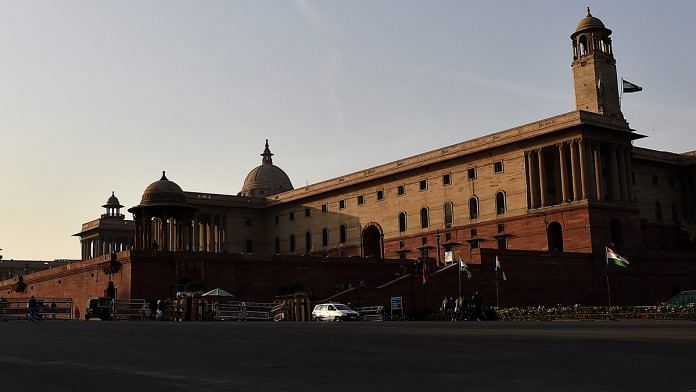]New Delhi: A five-member committee, constituted by the Ministry of Home Affairs, to overhaul criminal laws is facing pushback from within the legal community for its composition and proposed functioning.
A letter dated 8 July (Wednesday) and signed by 69 legal luminaries has said that this committee “lacks diversity both in terms of the social identity of members, as well as their professional background and experience”.
Signatories of the letter include former Supreme Court judges Aftab Alam and Gopala Gowda, and senior advocates Raju Ramachandran, Anand Grover, Meenakshi Arora, N. Hariharan, and Mihir Desai.
The committee, constituted on 5 May, is headed by Ranbir Singh, vice-chancellor of the National Law University in Delhi. It also comprises G.S. Bajpai, registrar of the National Law University; Balraj Chauhan, vice-chancellor of Dharmashastra National Law University in Jabalpur; senior advocate Mahesh Jethmalani and former Delhi district court judge G.P. Thareja.
On 4 July, the committee began its consultative exercise and put out the first questionnaire for expert inputs, with a two-week deadline. Five more questionnaires will be subsequently released over the next three months. The process will end on 25 September.
Each of these questionnaires will deal separately with the Indian Penal Code, the Code of Criminal Procedure and the Indian Evidence Act.
The questions in the first questionnaire address various subjects, including marital rape, making sexual offences gender-neutral, legalising euthanasia, creating separate offences for “mob lynching” and “honor killing”, and revisiting sedition.
Wednesday’s letter has called on the committee to release all questions upfront for all Acts, arguing that the three laws (Indian Penal Code, the Code of Criminal Procedure and the Indian Evidence Act) are “intrinsically connected”. It also asks the committee to provide at least three months for stakeholders to respond to all issues.
A demand has been made for these questionnaires in all major Indian languages and removal of the present 200-word limit on answers. It seeks more expertise and diversity through sub-committees as well as increased transparency, by making responses and draft reports publicly available.
Also read: Sexual intercourse is consensual only if it is ‘welcomed’ by a woman: Kerala High Court
‘No women, LGBT or differently-abled representation’
Another letter by a group of “women litigating lawyers” has also been doing the rounds. This letter has pointed at a “foundational defect” in the committee’s composition.
It asks for expansion of the committee, to include “eminent women, Dalit, Adivasi and various religious minorities, LGBT, differently-abled criminal law practitioners and grassroots workers from different parts of India”.
The letter, whose date could not be verified, also states that women had registered to participate in the consultation exercise started by the committee.
But women practitioners of criminal law have not been included on the committee, despite the fact that a large part of the first questionnaire focuses on reforms in sexual offences, it states.
The letter further sates that apart from Jethmalani, the committee does not have any practicing advocates.
“Any need for reform in criminal laws must be articulated by those who, on a daily basis, engage with these laws and see how they play out in practice. Else, this will either become a mere academic exercise, devoid of real impact, or worse, will result in harm,” the letter asserts.
It also registers objections on the time frame and the consultative methodology adopted by the committee, calling it “deeply flawed”.
The letter notes that the committee’s decision to release separate questionnaires for each Act “betrays a lack of understanding” on how the criminal law jurisprudence works, as the three laws (Indian Penal Code, the Code of Criminal Procedure and the Indian Evidence Act) are interlinked.
It also calls the near three-month time frame for five more questionnaires “grossly inadequate”.
Also read: ‘Assault on rights to free speech, dissent’: 99 ex-IAS, IPS, IFS officers say in open letter
Bar Council of Delhi demands representation
The Bar Council of Delhi has also written to Home Minister Amit Shah, pointing out that the committee has not included the Bar Council of India or the state bar councils.
While it appreciated the fact that a committee was set up for a review of the criminal laws, the letter, dated 29 June, also said, “The Bar Council of India and other state bar councils, along with experts on the subject can provide better inputs with their vast experience, but so far they have not been included in the high powered committee.”
“We hope that the Government of India will include representatives of the bar councils to help in the introduction of a better system,” it added.
Also read: 99% habeas corpus pleas filed in J&K since Article 370 move are pending, HC Bar tells CJI



